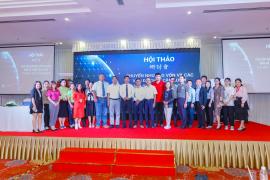PPP FORGIVENESS TOO SLOW IN SOME CASES, INSPECTION FINDS
The U.S. Small Business Administration (SBA) did not meet the 90-day statutory requirement to remit Paycheck Protection Program (PPP) forgiveness payments to lenders for loans totaling $66.4 billion, according to a report released Monday by the Office of the Inspector General (OIG).
The U.S. Small Business Administration (SBA) did not meet the 90-day statutory requirement to remit Paycheck Protection Program (PPP) forgiveness payments to lenders for loans totaling $66.4 billion, according to a report released Monday by the Office of the Inspector General (OIG).
For loans of more than $2 million that already have been forgiven, the SBA did not meet the 90-day requirement 98.2% of the time, as forgiveness for the largest loans was much more likely to be delayed. The OIG recommended that the SBA develop a plan to ensure that the remaining PPP forgiveness reviews and remittances are completed within 90 days as required by the Coronavirus Aid, Relief, and Economic Security (CARES) Act, P.L. 116-136.
The SBA's management agreed with the report finding and recommendation, according to the OIG, but stated in a letter to the OIG that 85% of manual forgiveness reviews completed in 2021 were finished in 90 days or less. The remaining 15% took longer than 90 days because of a potential compliance or eligibility issue that needed to be researched and resolved, according to the letter sent by Jihoon Kim, director of the SBA's Office of Financial Program Operations.
The OIG stated that failing to complete reviews or remit payment promptly creates uncertainty for borrowers and PPP lenders. The OIG also identified other matters for the SBA to address.
According to the OIG, the SBA needs to monitor loans with outstanding loan forgiveness applications. A high risk of fraud is associated with these loans, according to the OIG.
The OIG also said the SBA should continue to monitor the impact of significant changes made to its loan review process that allow for remitted forgiveness payment and retroactive review of certain loans, to mitigate risk associated with a pay-and-chase environment and ensure program objectives are met.
The SBA revised its loan review processes in June 2021 and stopped manually reviewing all loans of $2 million or greater, and in certain circumstances decided it would retroactively manually review loans for fraud and ineligibility after they have been forgiven.
In addition, the OIG said the SBA should assess how changes in program requirements affect the loan eligibility and forgiveness review process. In March 2021, the SBA issued an interim final rule that allowed applicants who file IRS Form 1040, Schedule C, Profit or Loss From Business, to calculate their maximum loan amount using gross income rather than net income.
This reduced barriers to the PPP for sole proprietors, independent contractors, and self-employed individuals. But many of the loans to Schedule C filers were made by lenders that rely exclusively on third-party loan processing or software platform vendors.
Because those vendors often don't have a relationship with the SBA, the OIG believes it is important for the SBA to focus targeted efforts on those types of loans and review appropriate documentation to minimize the risk of fraud.
AICPA experts discuss the latest on the PPP and other small business aid programs during a virtual town hall held every other week. The webcasts, which provide CPE credit, are free to AICPA members and $39 for nonmembers. Go to the AICPA Town Hall Series webpage for more information and to register. Recordings of Town Hall events are available to view for free on AICPA TV.
The AICPA's Paycheck Protection Program Resources page houses resources and tools produced by the AICPA to help address the economic impact of the coronavirus.














